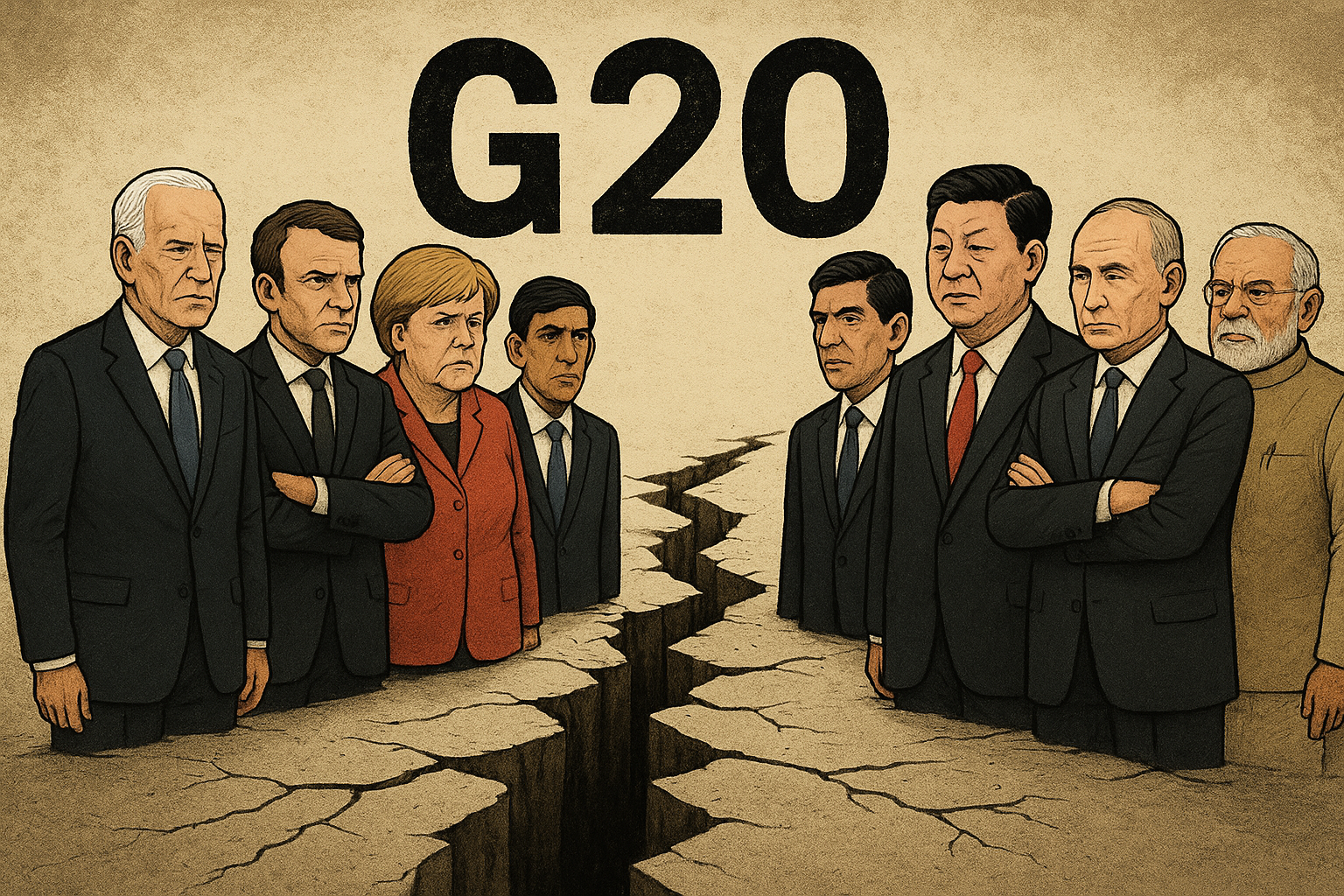
G20 at Breaking Point
To seize this pivot point, the G20 must issue a binding declarat-ion that binds sight, not just words, to action.
The G20 finance ministers and central bank governors have convened in South Africa, marking the first time Africa holds the presidency. This meeting is guided by the themes of Solidarity, Equality, and Sustainability, with South Africa prioritising a Global South agenda that includes debt relief for developing economies, climate financing for equitable transitions, and cooperation in an era of increasing trade tensions. However, these objectives face significant challenges due to ongoing geopolitical uncertainties, vulnerable economies, and the risk of global fragmentation.
Public debt frames this moment in stinging clarity. By mid-2025, global public debt will have reached a record-breaking $102 trillion, with debt in developing economies rising at nearly double the rate of advanced economies. The International Monetary Fund projects that public debt will climb to 95.1% of global GDP by year’s end, putting many low-income countries on the edge of default.
Sub-Saharan Africa alone is burdened with over $800 billion in external debt, and more than half of its countries now spend more on interest payments than on health or education. At the same time, debt servicing costs for OECD countries have risen sharply, now consuming 3.3% of their GDP on average, up from 2.4% just four years ago. Climate finance remains insufficient, with only $196 billion raised for emerging economies in 2023, well short of the $1 trillion annually needed by 2030 to meet climate targets. Disagreements at the Cape Town finance ministers’ meeting prevented a consensus, resulting in a mere chair’s summary supporting multilateral trade through the WTO. The lack of agreement hinders progress on renewable energy and green infrastructure in regions that need it most.
Trade, meanwhile, is no tranquil current but a churning storm. Tariffs and threats loiter like grey clouds, heavy and unsparing. The Trump administration’s cascade of proposed tariffs on steel, autos, pharmaceuticals, and exports from BRICS nations has galvanised fears of retaliation, fracturing trust and unsettling markets. At the Greenville talks in Cape Town, the absence of U.S. Treasury Secretary Scott Bessent and that of other heavily hit delegations served as both metaphor and message: multilateral norms are unravelling. These three threats, crushing debt, starved climate finance, and volatile protectionism, do not operate in isolation. Debt drains the lifeblood needed for climate resilience. Protectionism stifles trade and investment, shrinking fiscal space and deepening indebtedness. Climate inaction amplifies disasters that scramble budgets and threaten solvency. And yet the G20 remains the locus where hope could refocus.
In this landscape, innovation must break its chains. First, the G20 must confront debt not as a series of ad hoc rescheduling, but as a systemic emergency, demanding a swift collective response. A global refinancing window should be opened, offering immediate relief. This cannot be a one-off charity; it must be married to concessional financing that empowers green and inclusive development, structured to ensure that emerging markets borrow to invest, not simply to repay.
Second, climate finance cannot trail behind ambition. The G20 must mobilise at scale through blended instruments: green bonds designed for emerging economies, multilateral pooled funds to de-risk investments, and a radical retooling of the World Bank and regional development banks to prioritise climate adaptation, biodiversity, and just transitions. It is not enough to talk; financing must follow, equitably, consistently, and at the scale demanded by the climate emergency.
Third, trade must recapture its promise as a conduit for cooperation, not confrontation. The G20 must reassert open rules-based commerce, revoking punitive tariffs, strengthening dispute-resolution mechanisms, and embedding safeguards against retaliation. Trade as fair exchange, not fracturing rancour, must be its restored identity.
South Africa, at the heart of this moment, carries the G20 presidency under the banner of “Solidarity, Equality, Sustainability”. Yet the task laid bare is monumental. The U.S. withdrawal from flagship climate financing such as the Just Energy Transition Partnership, leaving a gap of over $1 billion out of an $11.6 billion pledge, reveals how precarious commitment remains. South Africa has proposed a “cost of capital commission” to address the debt challenge, inviting independent experts to chart a new course. It has courted support from the African Union, BRICS, and the EU, which cemented investment pledges, even as the U.S. posture grows absent.
The G20’s finance track meetings in Durban saw consensus on central bank independence and price stability, even as key narratives remained unspoken, and key players were still absent. Yet agreement on foundational economic tenets offers a thread, a cue that consensus may yet be found, but only if the path is widened, not narrowed. To seize this pivot point, the G20 must issue a binding declaration that binds sight, not just words, to action. It must commit to a global refinancing window; a dramatic surge in climate finance focused on the just transitions of the most vulnerable; a roadmap to dismantle crippling tariffs; and governance reforms that bring the Global South a real seat at the table of multilateral institutions.
This is not a prescription for platitudes, but for breakthroughs. In the crucible of polycrisis, economic, environmental, geopolitical, the G20 can choose to be an anchor of equitable resilience or a relic of fading consensus. Let this Johannesburg presidency be a turning, not a tipping point. Let us forge frameworks where debt is eased, climate finance is delivered, and trade is fair. Only then can a future be crafted that belongs not to the powerful, but to all who share this fragile, interconnected planet.
Source:https://www.nation.com.pk/09-Aug-2025/g20-at-breaking-point


